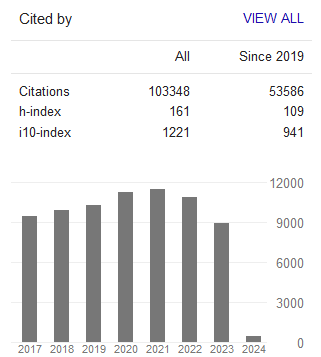Does the Anger Rumination has an Effect on the Employee Creativity
- Ebru Gozukara
- Yagmur Ozyer
Abstract
Individuals, especially in the management level, who are distinguished with their employee identity in their respective workplaces in the unity of social life, highly interact with each other. It is evident that in this process wherein the individuals interact with each other, their attitudes towards each other affect the process of creating mutual behaviors and perceptions. On one hand individuals may harm each other through unethical or counterproductive behaviors and on the other hand, even if there is no intention to harm, the behavior of the individual with whom one interacts can be perceived as aggressive. All these scenarios cause anger rumination in individuals, which can be defined as one’s contemplating over the reasons of behavior or attitudes through anger while spending a lot of time. Meanwhile, anger can be defined as creating a negative emotion towards any cognitive assessments, psychological changes and tendencies of action. That this process of creating emotions is evaluated for a long period of time via rumination may lead to the assumption that the affects of the employee change due to anger rumination. On the other hand, the employee creativity emerging during the activities of individuals in their respective workplaces depend on a highly emotional evaluation. This study has been prepared to determine whether, especially in the case of white-collar workers experiencing anger rumination, that has an effect on their individual creativity. The relation between the anger rumination and the employee creativity constitutes this study’s distinctive aspect. The data obtained from this research propose that the creativity is a basic need of companies and that determining the impact level of the anger rumination on the creativity and taking counter-measures against the anger rumination may contribute to the building of an innovative company in a competitive market.- Full Text:
 PDF
PDF
- DOI:10.5539/ijbm.v11n2p53
Journal Metrics
Google-based Impact Factor (2023): 0.86
h-index(2023): 152
i10-index(2023): 1168

Index
- Academic Journals Database
- ACNP
- AIDEA list (Italian Academy of Business Administration)
- ANVUR (Italian National Agency for the Evaluation of Universities and Research Institutes)
- Berkeley Library
- CNKI Scholar
- COPAC
- EBSCOhost
- Electronic Journals Library
- Elektronische Zeitschriftenbibliothek (EZB)
- EuroPub Database
- Excellence in Research for Australia (ERA)
- Genamics JournalSeek
- GETIT@YALE (Yale University Library)
- IBZ Online
- JournalTOCs
- Library and Archives Canada
- LOCKSS
- MIAR
- National Library of Australia
- Norwegian Centre for Research Data (NSD)
- PKP Open Archives Harvester
- Publons
- Qualis/CAPES
- RePEc
- ROAD
- Scilit
- SHERPA/RoMEO
- Standard Periodical Directory
- Universe Digital Library
- UoS Library
- WorldCat
- ZBW-German National Library of Economics
Contact
- Stephen LeeEditorial Assistant
- ijbm@ccsenet.org
